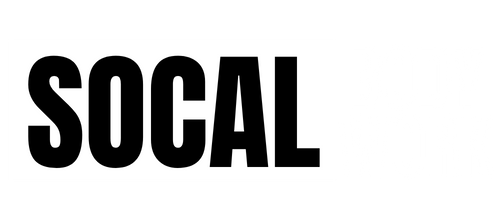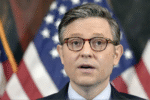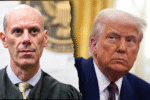In a sharply worded editorial, the conservative-leaning Wall Street Journal (WSJ) has taken a public stand against former President Donald Trump’s latest trade proposal, urging Republican lawmakers to intervene. The editorial board, known for often aligning with free-market principles, described Trump’s tariff initiative as the “dumbest trade war in history” and warned of its economic and political consequences.
At the heart of the criticism is Trump’s renewed push for sweeping tariffs on foreign imports, including a proposed 25% tariff on goods from Mexico and Canada and an additional 10% across-the-board tariff on Chinese products. The WSJ argues that these policies are a repeat of past mistakes that risk economic harm while undermining America’s global trade relationships.
A Return to Protectionism
The former president’s trade stance marks a revival of the aggressive tariff measures that characterized his first term, notably those imposed in 2018 under Section 232 of the Trade Expansion Act of 1962. At the time, Trump used national security as justification to impose tariffs on steel and aluminum imports from key U.S. allies, including Canada and Mexico.
These moves triggered retaliatory measures from affected countries and strained relationships with traditional partners. Trump’s actions also complicated negotiations around the United States-Mexico-Canada Agreement (USMCA), a trade pact he championed to replace the North American Free Trade Agreement (NAFTA).
WSJ’s Fierce Rebuke
The WSJ editorial criticized Trump’s proposals as economically self-defeating and strategically incoherent. “[These tariffs] could unravel the USMCA deal that Mr. Trump himself negotiated,” the editors warned, noting that imposing trade barriers on allies without cause damages American credibility in future agreements.
Punishing American consumers and businesses for no strategic gain is the worst idea since tariffs,” the editorial reads. The board emphasized that tariffs function as a tax on American businesses and consumers, increasing costs on essential goods and services while inviting retaliatory trade measures from other nations.
Legal Concerns and Congressional Oversight
Beyond the economic consequences, the WSJ raised alarm over Trump’s reliance on executive powers to enact sweeping tariffs without Congressional approval. Critics argue that the overuse of emergency powers, such as those granted by the International Emergency Economic Powers Act (IEEPA), bypasses the Constitution’s provision that gives Congress authority over trade policy.
Legal experts and editorialists have called on lawmakers to reassert their constitutional role in setting trade policy. “It’s time for Congress to step in before the executive branch turns economic policy into a personal plaything,” the editorial declared.
You can learn more about IEEPA via the U.S. Department of the Treasury.
A Familiar Fight Within the GOP
Trump’s tariff agenda is once again dividing the Republican Party. While some lawmakers back a more protectionist approach, especially those in states with struggling industries, others have joined the WSJ in warning against economic isolationism.
Republican free-traders argue that tariffs hurt American farmers, manufacturers, and small businesses—many of whom rely on global supply chains. For example, the American Farm Bureau Federation has historically voiced concerns about trade wars that result in retaliatory tariffs on U.S. agricultural exports.
The editorial urged GOP leaders to block Trump’s latest proposal before it can gain momentum. “Republicans must decide whether they are the party of economic liberty or one-man rule,” the WSJ stated.
Trump’s Reaction
Trump responded characteristically on social media, blasting the Journal as “always wrong” and accusing it of siding with “globalist elites.” He defended his trade policies as necessary tools to pressure trading partners and protect American jobs, a message that still resonates with segments of his political base.
Despite the criticism, Trump remains the leading Republican candidate for the 2024 presidential election, setting up a potential internal clash within the party over economic policy.
Implications for 2024
Trade policy may become a defining issue in the 2024 election, especially as inflation and global supply chain concerns remain top of mind for voters. A shift toward higher tariffs could ripple across nearly every sector of the U.S. economy, including retail, manufacturing, technology, and agriculture.
Economists across the ideological spectrum have urged caution. A study from the Peterson Institute for International Economics estimated that Trump-era tariffs reduced U.S. GDP by 0.3% and led to job losses in sectors dependent on trade.
Conclusion
The Wall Street Journal’s editorial stands as a rare and direct appeal from a traditionally conservative institution to Republican lawmakers: stop Trump before his trade agenda inflicts further damage. With the 2024 election approaching and trade once again at the center of national debate, the GOP faces a stark choice between economic orthodoxy and Trump-style protectionism.









